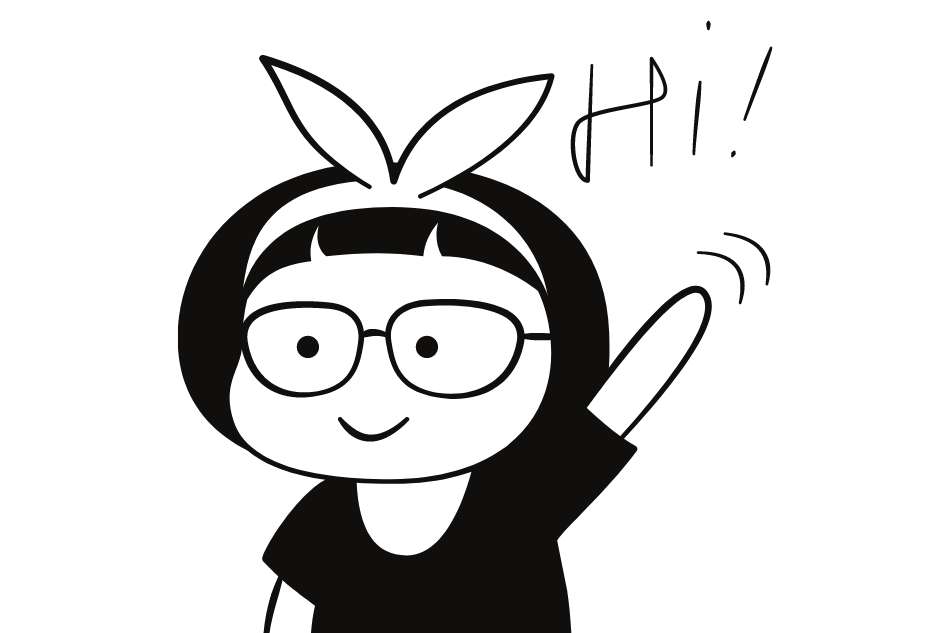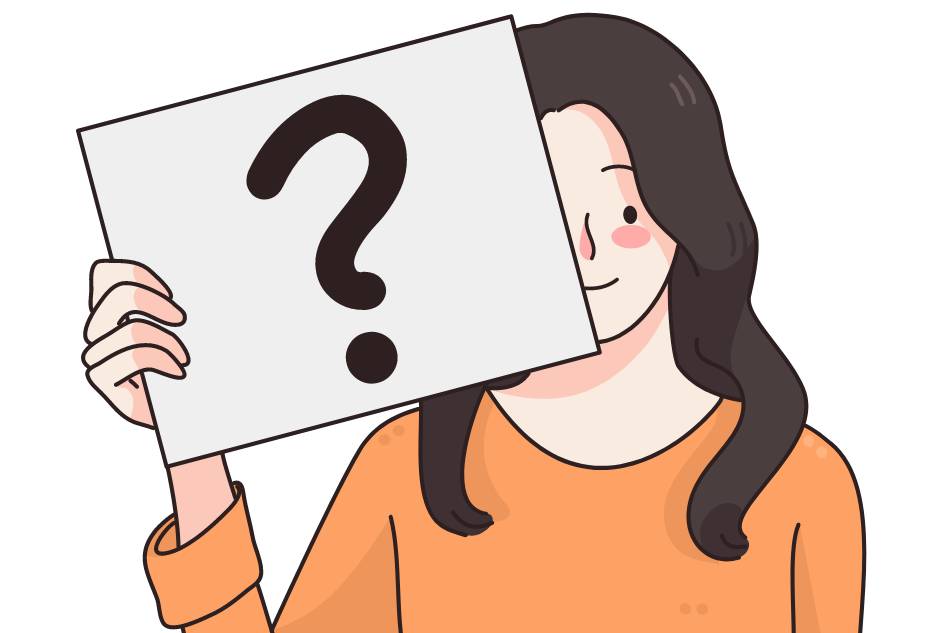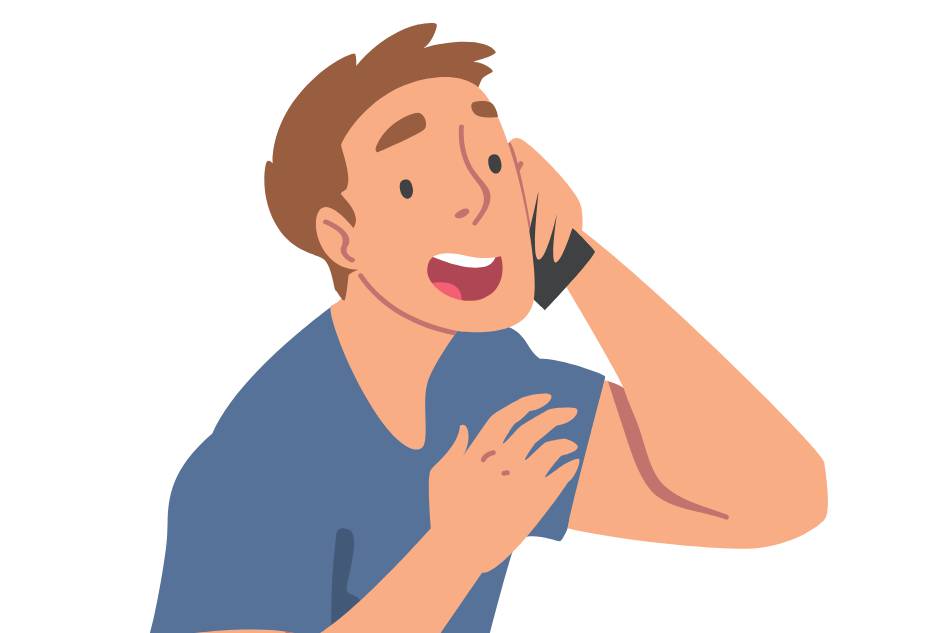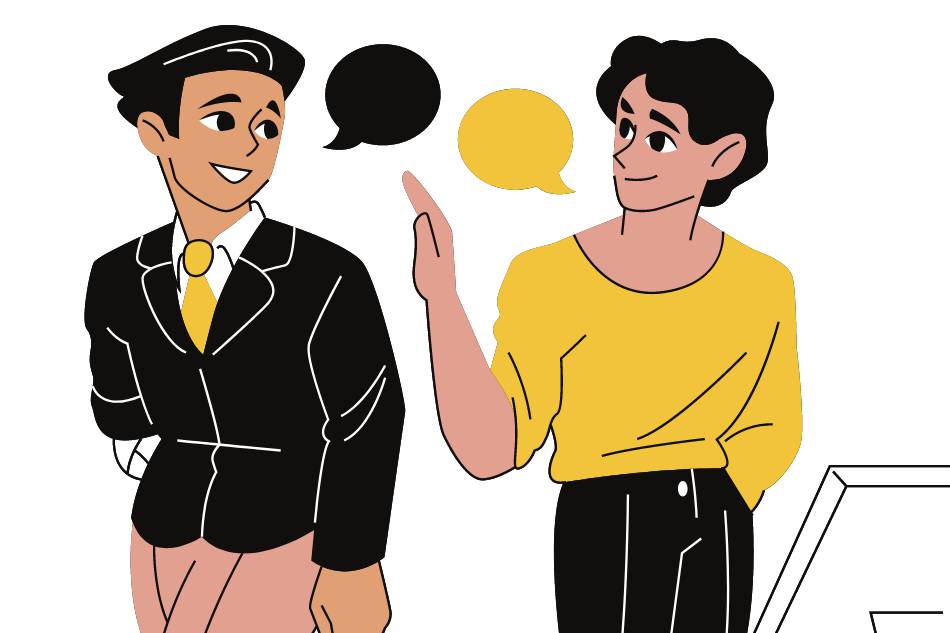As social beings, we regularly meet new people and get to know each other to develop social relationships. However, it may not seem easy to talk to new people to many of us. On the other hand, some people can quickly get to know the people around them, and in a few minutes, it seems they are known for years to each other.
How do they do it?
Getting to know each other requires you to create an excellent first impression by greeting them properly, eventually leading the conversation further. You should break the ice and initiate the conversation by talking about yourself and asking some get-to-know-other questions. Be polite, genuine, and a good listener while getting to know each other
Are you looking for a book or a guide to help you learn and improve your English? You may try English Made Easy Volume One: A New ESL Approach: Learning English Through Pictures (Amazon Link).
In this post, I’ll guide you through a proper way of getting to know each other in English. Along with different phrases, expressions, and questions, I’ll also discuss some dos and don’ts of getting to know each other.
Table of Contents
- Greet Properly—Create a Good First Impression
- Introduce Yourself First—Talk about Your Basics
- Ask Some Get-to-know-each-other Questions
- Find Something of Common Interest to Talk about
- Be Polite and Genuine While Asking & Answering Questions
- Be a Good Listener and Show Your Interest
- Consider the Setting—Formal or Informal
- A Sample Conversation on Getting to Know Each Other
- Takeaway Words
- In Conclusion
- 10 Frequently Asked Questions Related to Getting to Know Each Other in English
Greet Properly—Create a Good First Impression

Whether you meet someone for the first time at home, street, at school, or at work, properly greeting them can only create a good impression about you. If your greeting goes well, it will be easy to have a good conversation.
Eminent Princeton psychologists Janine Willis and Alexander Todorov experimented and concluded that it takes “a tenth of a second to form an impression of a stranger from their face.” So, you see the importance of creating a good impression from the very beginning of you meet someone.
You can greet someone in many ways depending on the settings. While getting to know each other, greeting an older person will obviously be different from greeting a colleague. The way you greet one of your friend’s friends whom you have met for the first time will be different from greeting a stranger on a train.
You can check my write-up on different expressions of greeting someone (i.e., stranger, friend, boss, colleague, older people, etc.) titled Examples of Greeting in English. You can get to know how to greet someone formally and informally. While greeting someone, you must remain confident, maintain a positive attitude and be thankful that you have got the opportunity to talk to them.
Moreover, I would like to refer to some other key etiquette. According to Emily Post, five things can help you create a good first impression while greeting someone.
1. Look them in the eye.
2. Give a firm handshake.
3. Greet them – “How do you do?” or “How do you do, Mrs. ________.”
4. When saying your name, say it slowly and clearly.
5. Smile!
Emily Post
Introduce Yourself First—Talk about Your Basics

Before you learn about someone you just met, it’s better to let them know about you first. While introducing yourself to someone, the best idea is to give them some basic information about you, such as name, profession, origin, etc. Let’s look at some example sentences that you can use to introduce yourself at the very outset of a conversation.
- Good morning! My name’s Alex.
- Hello! My name is Anwar, and I’m from Bangladesh.
- Hi! I’m Suzana, and I’m your new English teacher.
- Hey there! This is Sandy. I’m your local guide for this trip.
- Howdy! My name is John, and I’m here on behalf of the Sales team of ABC International.
Note: The above examples are all about some very basic information. You can surely add some more info considering the setting.
The above sentences will give some basic idea about who you are, which is really important for someone who has met you for the very first time. In fact, whether the conversation will proceed further or not may depend on how you introduce yourself to them.
The same strategy is also appropriate if you go somewhere as a team and need to introduce the other team members. While introducing someone else, you should give some basic information about them to whom you introduce them to.
Ask Some Get-to-know-each-other Questions

Right after introducing yourself, you can expect people to introduce themselves too. If not, you can ask them some get-to-know-each-other questions. The open-ended questions, mostly WH-Questions, work best in this regard as they can help lead the conversation further.
However, you may not have a good chat if your questions can be answered with YES or NO. Your open-ended questions that can make someone speak help break the ice and continue a friendly and healthy conversation. So, you should avoid yes/no questions.
Well! As get-to-know-each-other questions, besides someone’s name, you can ask about their country, hometown, profession, hobbies, interests, etc.
Here are some get-to-know-each-other questions:
- What’s your name?
- Where are you from?
- Do you follow English Premier League?
- Do you like sci-fi movies?
- Do you live here?
- Which drink do you prefer most? Tea or coffee?
- What do you do in your leisure time?
- How long have you been in London?
- What are your hobbies?
- What do you do on Weekends?
- Which genre do you like? Jazz or Hip-hop?
- Do you have any museums near your place?
- What are your food preferences?
- Do you speak any other languages?
Note: Don’t ask exclusively personal questions when you meet someone for the first time.
There can be hundreds of such questions you can ask someone to get to know each other. If you have such examples in your mind, you can share them in the comment box. To check your competence in English, you can take quizzes on different ESL topics.
Find Something of Common Interest to Talk about

One of the effective ways to get to know each other is by talking about common interests. You can talk about different universal issues and find common interests or hobbies. This way, you will know the person’s viewpoint on particular issues.
At the same time, when you talk about something you are both interested in, the conversation will flow naturally.
For example, if you ask someone, “Which place would you love to travel to again and again?” you will be able to know their favorite place for a holiday. Even if they may like the same place as you do, who knows! And, of course, if you see them interested in traveling like you, it will be easy for you to continue the conversation. And you will be able to get to know each other.
Well! Here, I present a list of questions like the above one that you can ask to find the common interests of someone you get to know.
- What is your favorite genre of book?
- Is there any movie you have watched so many times?
- Which food is your all-time favorite?
- What sports are you interested in?
- Which celebrity do you wish to meet at least once in your life?
- Can you remember your school time? How was that? Any memory?
- What pets do you like?
- Which musician is your favorite?
- Which TV Show do you never think of missing?
- What is your favorite season?
- Who’s acting seems mesmerizing to you in Hollywood?
- Which profession looks pretty fascinating to you?
- Do you follow the politics of the country?
- So you still have a connection with your school friends?
- Who is the funniest person in your family?
- What do you dream of being one day?
Be Polite and Genuine While Asking & Answering Questions

While getting to know each other, you are expected to be polite in your choice of words, tone, and body language. You should not ask anything for the sake of asking; instead, you have to be genuine whether you as questions or answers.
You must not ask anything that may offend the person you are talking to and not respond to their question rudely. A common practice among many people is asking questions in response to them.
Yes, you can ask questions for reconfirmation, but responding to a question with counter questions may sound worse than rude to many people.
However, if you really have any questions, answer the questions for yourself first and then ask your questions. You should appreciate them for the questions and compliment them when appropriate.
Keep your compliments genuine and minimal. To learn different ways of complimenting someone, you can read my article titled How to Compliment Someone in English.
Be a Good Listener and Show Your Interest

Listening to someone actively and showing interest can play a significant role in getting to know each other. When you listen to someone attentively, they can feel that you are giving importance to them. Your interest becomes evident, even if you don’t say it in words.
A good listener immediately responds to the people they are listening to. Such responses can be verbal or non-verbal, or both.
While getting to know each other, your verbal responses can include
- Asking further questions to reconfirm or get to know in detail
- Appreciating their ideas or preferences
- Giving some input on the topic
Non-verbal responses can consist of eye contact with genuine interest and curiosity and other positive body language. However, remaining silent when necessary is also an essential quality of a good listener.
Remember! While getting to know each other, try to avoid giving advice. Some people may not feel good listening to your advice right at the first meeting. It may offend them and result in an unsuccessful getting-to-know-each-other conversation.
Consider the Setting—Formal or Informal

While getting to know each other, you must consider whether you are in a formal situation or not. You may not speak to a friend’s friend to get to know them in a way that you would do to get to know your new boss.
Depending on the degree of formality of a situation, you must speak accordingly. Your choice of words, tone, and body language may vary due to the setting.
Remember! Politeness is the key whether you are in a formal or informal setting. You cannot be impolite even to your closest friend.
A Sample Conversation on Getting to Know Each Other
Principal: So, Mr. Howard. Let’s begin our interview, shall we?
Howard: I’m ready.
Principal: Good. So, tell me something about yourself first.
Howard: My name’s John Lobb Howard, and I’m from Modoc county. I graduated with a BA in English Literature in 2009 and an MA in 2011. I realized I wanted to be a teacher – so I started looking for jobs in schools.
Principal: Alright. Can you tell me about your teaching experience?
Howard: Sure, sir. I joined a middle-grade school and taught 5th and 6th-grade students for 2 years. It gave me an insight into the required qualities of an effective English teacher. Later, I switched to a special education school where I had to teach children who needed extra care. I’ve learned a great deal from my fellow teachers and through occasional workshops and study materials.
Principal: That’s amazing, Mr. Howard! What else did you do on your teaching journey?
Howard: 4 years later, I joined a non-profit organization and taught rural and suburban inhabitants in African and Asian countries. It was a diverse and more challenging experience. I worked with them for 3 years and then joined a private university. And it’s been 2 years since then.
Principal: Your teaching experience is diverse and very exciting, Mr. Howard.
Takeaway Words
County (noun) = a sub-divisional area or territory within a country
Middle-grade (noun) = an education level for students aged from 8 to 12
Insight (noun) = a deep and accurate understanding of something
Workshop (noun) = a meeting of people to discuss, understand and learn new things
Suburb (noun) = an informal way to say “suburban”
Rural (adjective) = someone or something that belongs to remote countryside areas
Diverse (adjective) = having multiple sides or aspects of something
In Conclusion
Our life is all about meeting new people and gathering new experiences. In our personal & professional lives, having people surrounding us can make our life easier. Regardless of class, gender, age, and profession, we need to know people around us, and they tend to know about us as well.
In this post, I talked about different ways to get to know each other.
Thanks for reading.
Happy learning!
10 Frequently Asked Questions Related to Getting to Know Each Other in English
1. What are some common questions to ask when getting to know someone?
Questions like “Where are you from?”, “What are your hobbies?”, and “Do you have any favorite books or movies?” are common starters.
2. How can I ask about someone’s family without being intrusive?
You can gently ask, “Do you have any siblings?” or “Tell me a bit about your family if you’re comfortable.”
3. How do I inquire about someone’s job or studies?
Phrases like “What do you do for a living?” or “What did you study in college?” are appropriate.
4. Is it polite to ask about someone’s age?
Generally, it’s best to avoid asking directly about age unless the context is relevant or the relationship is informal.
5. How can I learn about someone’s interests?
Questions like “How do you like to spend your weekends?” or “Are there any activities or hobbies you’re passionate about?” can reveal interests.
6. Is it appropriate to ask about someone’s relationship status?
It’s a personal topic, so it’s best approached with sensitivity and only if the context is right or the relationship is close.
7. How can I ask about someone’s travel experiences?
You can ask, “Have you traveled anywhere recently?” or “Do you have any favorite vacation spots?”
8. What if I want to know about their cultural or ethnic background?
Tread lightly and ensure the context is appropriate. You can ask, “I love learning about different cultures; can you tell me about your heritage?”
9. How can I ask about someone’s future plans or aspirations?
Questions like “Where do you see yourself in five years?” or “Do you have any big goals you’re working towards?” can be used.
10. How do I ensure the conversation is a two-way street?
After asking a question, you can also share about yourself, like “How about you?” or “I’ve always wanted to visit that place too.”





